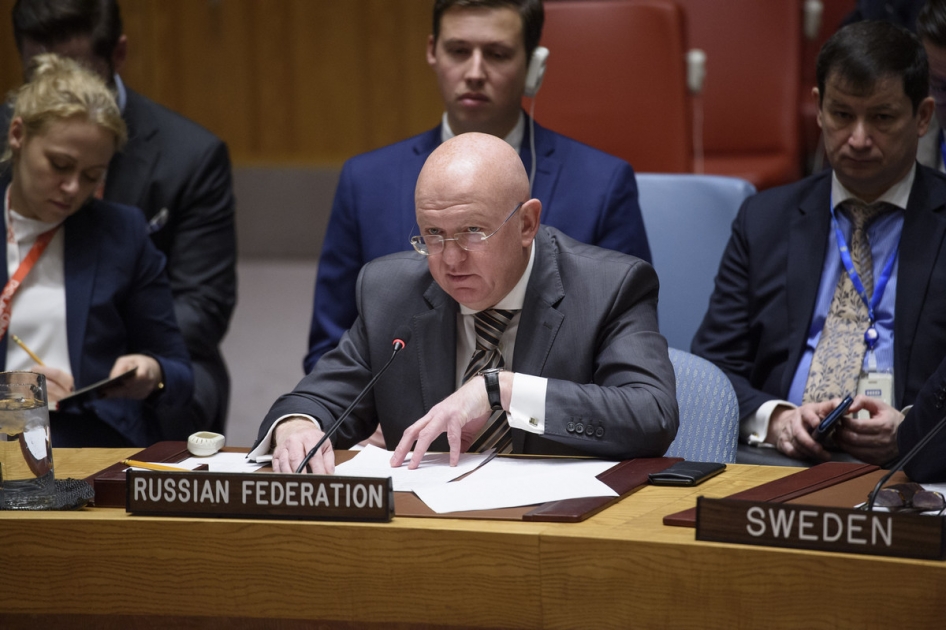Statement by Ambassador Vassily A. Nebenzia, Permanent Representative of the Russian Federation to the United Nations, at the Security Council meeting on the situation in Somalia/Eritrea
At the outset, I would like to congratulate both the leadership and the people of Eritrea on the lifting of the Security Council’s sanctions.
We have long said that the international restrictions against Eritrea were irrelevant. Over all these years no convincing evidence has been produced for Asmara’s support to destructive forces in the region, and in the wake of the changes that have occurred in the Horn of Africa, the classification of the dispute between Djibouti and Eritrea as a threat to international peace and security was also outdated.
We hope that the Council’s adoption today of resolution 2444 (2018) will be a significant milestone in the work of strengthening friendly and good-neighbourly relations in the region. It would not be an exaggeration to say that the Council is indebted to Ethiopia and its Prime Minister, Mr. Abiy Ahmed, whose brave and decisive actions did a great deal to ensure the outcome of today’s vote. Of course, the resolution will not deal with all of the region’s chronic issues in one fell swoop, to coin a phrase.
We hope in particular that it will be a stimulus for promoting the normalization of relations between Eritrea and Djibouti. At the same time, however, we believe that the work of settling all the issues outstanding between the two countries belongs to bilateral diplomacy. If necessary, the parties can use the good offices of mediators and other purpose-built international mechanisms. In that regard, we consider that the regular and, what is most surprising, the indefinite reporting imposed by a group of countries looks like an outrageously excessive demand.
We regret the fact that the authors of the resolution included provisions affirming sexual and gender-based violence as a separate criterion for the imposition of sanctions, despite the fact that such behaviour is covered under the existing listing criteria.
I want to remind the Council once again that issues pertaining to sanctions are clearly regulated under Chapter VII of the Charter of the United Nations, which is about the presence of threats to international peace and security. Any broader interpretation of that position runs the risk of a loss of sanctions instruments’ effectiveness and, what is worse, their relevance. With regard to other countries subject to sanctions we have explained many times the negative consequences of such moves for the Council’s work.
Let me emphasize once again that this issue is not part of our direct remit. If we want to discuss such issues, we have the Human Rights Council and the Commission on the Status of Women. We should respect the appropriate division of labour in that regard.
